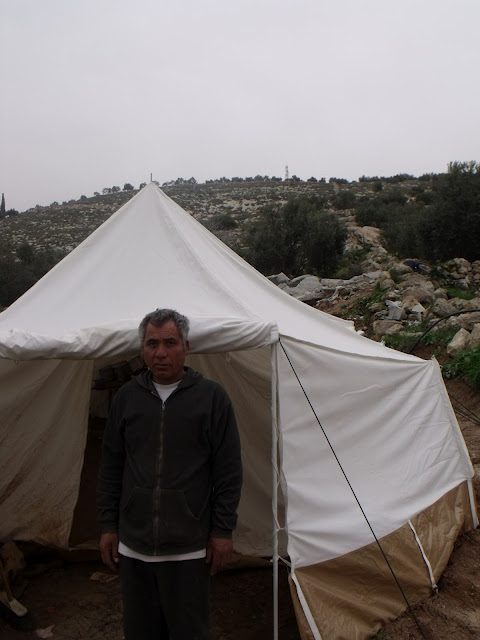-
Women Studies Center of Nablus: Women’s rights are Palestinian rights
by Jonas Weber 18 February 2012 | International Solidarity Movement, West Bank “We rented this house since a year back,” says Randa Bashir as she looked around in the brightly lit meeting room at the Women Studies Centre in Nablus. Like most Palestinian houses it is designed to keep cool during the warmer time of the year […]
-
5 Palestinian fishermen arrested by Israeli Navy, one of them a 13 year old boy
by Rosa Schiano 16 February 2012 | il Blog di Oliva In the past few days five Gazan fishermen have been arrested by the Israeli Navy off the north coast of Gaza. Adham Mahmoud Abu Ryada, 22, and his brother Mohammed Mahmoud Abu Ryala, 13, were both arrested on Sunday evening. Jamal Ramadan Al Sultan, 58 […]
-
Idhna: Tent replaces home as local resists illegal Israeli land confiscations
by Sylvia 16 February 2012 | International Solidarity Movement, West Bank Idhna has suffered considerably since the Israeli occupation, particularly due to the construction of the segregation wall and some 3,000 dunums of land which has been stolen since the second Intifada. Idhna is surrounded by the Israeli settlements of Adora and Telem to the […]
Action Alert An Nabi Saleh Apartheid Wall Arrests BDS Bethlehem Bil'in Cast Lead Demonstration Denial of Entry Ethnic Cleansing Farmers Gaza Global Actions Hebron House Demolition International law Israeli Army Jerusalem Live Ammunition Nablus Ni'lin Prisoner Ramallah Rubber-coated steel bullets Settlement Settlers Settler violence Tear-Gas Canister Video


